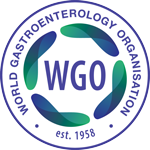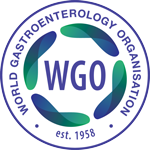- Who We Are
- Membership
- Education & Training
- Meetings
- Guidelines
- Publications
- e-WGN
- News You Can Use
- Early surgery for Crohn’s disease
- Which Africans with chronic hepatitis B should receive antivirals?
- Nutrition in cirrhosis: recommend a bedtime snack
- Endoscopic removal of Gastrointestinal Stromal Tumors (GIST)
- JAK inhibitor effective in Crohn’s disease
- A new gastric cancer-producing pathogen? Streptococcus anginosus could promote gastric inflammation, atrophy, and tumorigenesis
- Where We Miss Cancers During Colonoscopy
- Primary Surgery vs. Anti-TNF in Crohn’s
- Global Trends in GI Diseases – The Good News and the Bad News
- Glucagon not helpful for food impactions
- Coconut water for ulcerative colitis: A (low-cost) biological of a different kind
- Should patients with pyogenic liver abscess be screened for colorectal cancer?
- Nucleos(t)ide analogue cessation in HBeAg-negative chronic hepatitis B
- Which stents are better for endoscopic management of pancreatic necrosis: metal or plastic?
- Seladelpar in Primary Biliary Cholangitis
- Recycled Hemodialysis Membranes Dramatically Reduce the Incidence off Water-Borne Diarrheal Illness
- Reverse metabolomics: new method for biomarker discovery in Crohn’s disease
- Article Submission
- Vedolizumab and ustekinumab levels in pregnant women with inflammatory bowel disease and infants exposed in-utero
- The Burden of Waste Generated by Endoscopy Units
- Tryptophan metabolites produced by the gut microbiome protect against enteric pathogens
- For hepatitis C access is the key to success
- Early Initiation of Biologics and Disease Outcomes in Adults and Children with Inflammatory Bowel Diseases: Results From the Epidemiology Group of the Nationwide Israeli Inflammatory Bowel Disease Research Nucleus Cohort
- Oral vonoprazan appears equivalent to IV PPI for prevention of peptic ulcer rebleeding
- An open-label randomized-controlled trial of azathioprine vs. mycophenolate mofetil for the induction of remission in treatment-naive autoimmune hepatitis
- Yoga for bowel preparation before colonoscopy
- Gastric Cancer: A Review of Risk Factors and New Insights into Treatment
- Diet in Infancy and Risk of IBD
- Risankizumab versus Ustekinumab for Crohn's Disease: When less is more
- Resmetirom in MASH/NASH with Liver Fibrosis
- Microbiome Signatures for Colorectal Cancer (CRC) – dealing with confounding variables to find the real message
- Colonoscopy in the Real World
- Extended mesenteric resection in Crohn
- Supplementing taurine may play an important role in anti-cancer therapy
- Eradication of Helicobacter pylori does not increase risk of esophageal adenocarcinoma
- Trainee involvement does not increase the risk of post-ERCP pancreatitis
- Risk of TB and HBV reactivation with ustekinumab therapy
- Gastric cancer is still common worldwide and can be predicted and prevented
- Mycophenolate mofetil for the induction of remission in treatment-naive autoimmune hepatitis
- EUS-guided therapy improves outcomes of endoscopic gastric varix treatment
- Polypectomy
- Polyp Detection at Colonoscopy
- Single-cell transcriptomic profiling uncovers cellular complexity and microenvironment in gastric tumorigenesis associated with Helicobacter pylori
- Is screening for celiac disease worthwhile?
- Diverticular Disease, Diverticulitis and Colorectal Cancer
- Does eradication of Helicobacter pylori increase risk of esophageal adenocarcinoma?
- Risk factors for Crohn’s disease – get a dog, get rid of the pet bird!
- How safe is ustekinumab before, during and after pregnancy in IBD?
- Increased dysregulation of non-neuronal and neuronal cell types as a major contributor of visceral pain in gastrointestinal disease
- How safe is local resection of T1 CRC? It depends on risk factors!
- Helicobacter pylori antimicrobial resistance: Test, then Treat
- Filgotinib vs upadacitinib in ulcerative colitis – which is better?
- Journal of Clinical Gastroenterology (JCG)
- Microbiota Magazine
- Climate Change
- Subscribe To Our Publications

